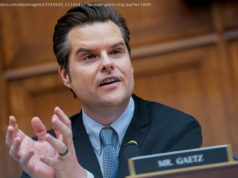While psychedelics are still illegal under federal law, companies are jostling to patent key ingredients found in magic mushrooms, ayahuasca and other substances used underground for decades or millennia by indigenous cultures.
Money is pouring into the fledgling psychedelic medicine industry, with dozens of startup companies vying to be among the first to sell mind-expanding drugs for depression, addiction and other mental health conditions.
While psychedelics are still illegal under federal law, companies are jostling to try to patent key ingredients found in magic mushrooms, ayahuasca and other substances that have been used underground for decades or — in some cases — for millennia by indigenous cultures.
Wall Street’s sudden exuberance for hallucinogens has rankled longtime advocates and philanthropists, who dreamed of making low-cost psychedelics widely available for mental health and personal growth. Instead, many now see a very different future for drugs like psilocybin and LSD: as expensive, specialty medications controlled by a handful of biotech companies.
“It’s disappointing,” said Carey Turnbull, an investor and philanthropist who sits on the board of several psychedelic nonprofits. “All the air is getting sucked out of the room by these for-profit companies who say, ‘Wow, this stuff is awesome, if I could patent it I’d make a fortune.’”
Since 2010, Turnbull and his wife have donated millions to fund psychedelic research at New York University, Yale and other top academic centers.
Promising results from those studies have sparked a wave of popular interest in psychedelics, amplified by books, documentaries and articles touting their potential to reshape care for mental illness, trauma and end-of-life care.
But in recent years, Turnbull has pivoted to challenging what he and other advocates consider frivolous patents filed by companies entering the field.
Most psychedelic startups are backed by venture capitalists or tech investors looking for the next industry “disruptor.” Behind one of the biggest companies, Atai Life Sciences, is PayPal billionaire Peter Thiel, whose enthusiasm for psychedelics is shared by many in Silicon Valley.
About 50 such companies now trade on public stock exchanges, including developers of psychedelic drugs, retreats and training programs. Some analysts project the industry could grow to over $10 billion within the decade.
But recently investors have pulled back, amid reminders of the stark challenges of converting illegal drugs into money-making medicines.
Atai laid off 30% of its staff last March after its depression treatment failed in a key study.
Home
United States
USA — Science Investors pile into psychedelics, replacing idealism with pharma economics






